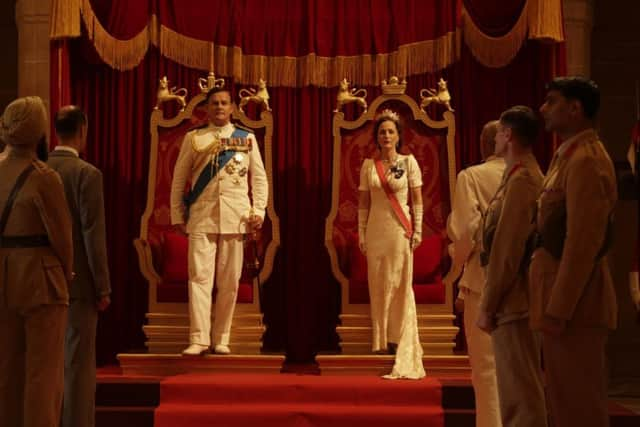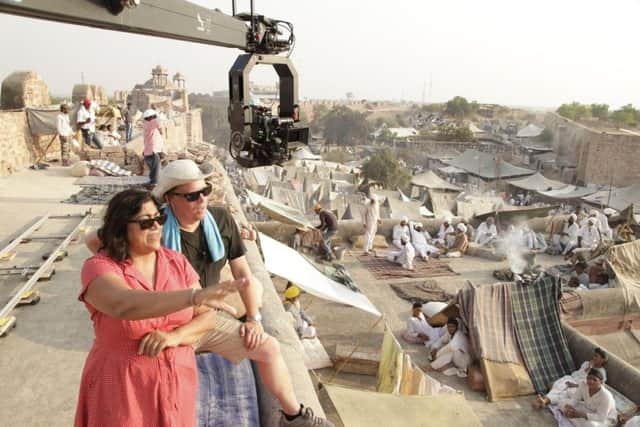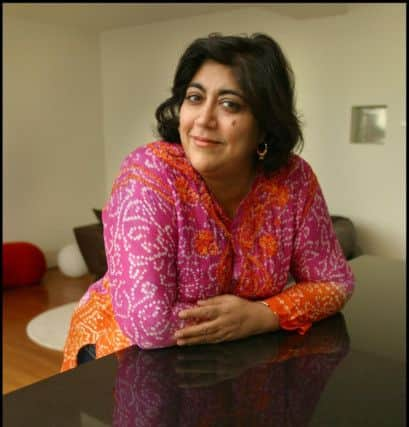Bend It Like Beckham director in Bradford to talk about Indian partition - and the power of storytelling in helping us view and review British history


And this weekend, acclaimed filmmaker Gurinder Chadha - who made her name with Bhaji on the Beach and Bend it Like Beckham - will be exploring those very contributions, and the scars and healing journeys springing out of huge political events, when she visits Bradford as part of a promotional tour for her new film Viceroy’s House.
The period drama, starring Hugh Bonneville (Downton Abbey), Gillian Anderson (The X Files) and the late Om Puri (East is East), charts the events of 1947, when Lord Mountbatten (Bonneville) was appointed Delhi’s last Viceroy, and was charged with handing India back to its own people.
Advertisement
Hide AdAdvertisement
Hide AdWhile overseeing the project, Mountbatten had a hand in the Partition; an action which resulted in the mass migration of millions of refugees who, dependent on religion, were forced to travel between two newly independent dominions – India and Pakistan.


Millions of Muslims, Sikhs and Hindus died in the ensuing troubles, including members of Miss Chadha’s own family,
The movie - on nationwide release from this Friday (March 3) - views the seminal historical event both through the eyes of Mountbatten and of servant Jeet, the upstairs-downstairs structure becoming a microcosm of the wider social upheavals.
The film’s release will coincide with the 70th Anniversary of the independence of India and the founding of Pakistan.
Advertisement
Hide AdAdvertisement
Hide AdBritish Asian film-maker Miss Chadha, who has Punjabi heritage, was inspired to delve into the subcontinent’s rich history, and the events surrounding independence, after filming an episode of BBC ancestry series ‘Who Do You Think You Are?’.


It’s a topic that she says has been virtually wiped from classroom curriculums, but which continues to reverberate throughout history.
“The partition of India during the last days of the British Raj is a subject not many people talk about,” Miss Chadha told The Yorkshire Post.
“Even though it was one of the largest forced migrations of refugees ever, and about 14 million people were made refugees overnight.
Advertisement
Hide AdAdvertisement
Hide Ad“In Yorkshire, a lot of people’s parents and grandparents would have been directly affected.


“So it’s a very relevant story not just for the Asian community, but also the English community, because it’s about our joint history.
“It’s important to remember that a lot of English people have a history with India too.”
This Sunday, Miss Chadha - who holds an honorary degree from Leeds University - will take part in a Q and A at Bradford’s National Media Museum following a special screening of the film.
Advertisement
Hide AdAdvertisement
Hide AdEarlier in the day, she will visit a community centre in Bradford, to speak to a South Asian older women’s group about their experiences of the 1947 partition.


It’s all for her charity project The 1947 Archive, which Miss Chadha says is “looking to record everybody’s experiences before we lose that generation”.
Her own feelings about 1947 are clearly emotionally charged, and she is keen to use the experience of the new film as a cathartic process, and take movie fans along with her on a journey of healing.
“My relationship with Britain started 400 years ago, when the East India Company came to India,” she explains.
Advertisement
Hide AdAdvertisement
Hide Ad“A lot of people think that Pakistan and India’s relationship with Britain is relatively new, since the 60s and 70s, when our parents came.
“But actually it’s because the British went to India 400 years ago that we have ended up making our homes here now.”
“It was a policy that the British thought would best serve themselves,” she adds of the partition, something which was in itself fraught with political tension both at home and abroad.
“It was seen as a solution at the time for Britain and America to have a miliary and strategic base in the region by helping to create the country of Pakistan, but a lot of ordinary people suffered, and the effects of that you still feel today.
Advertisement
Hide AdAdvertisement
Hide Ad“Seventy years later, I made this film as a British Asian and a Punjabi.
“It’s about finding a way to move forward - and heal ourselves.”
Referring to the current political atmosphere and the swathes of rhetoric about refugees, migration and the post-Brexit and post-Trump world, she says: “I think the film is a timely reminder of what happens when politicians and leaders use division and scapegoat certain people, and how that inevitably leads to fears and destruction.
“We have seen that in history, we can’t let it happen again. And hopefully the film will help people to try and resist those kinds of policies.”